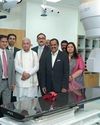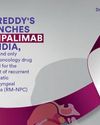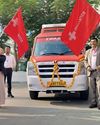
India's healthcare accessibility challenge is a multifaceted issue that has persisted for decades, affecting crores of people, especially the rural Indians. About 70 percent of India's population resides in rural areas but these regions account for only 37 percent of the country's healthcare infrastructure.
One of the primary challenges in rural healthcare is the severe shortage of medical professionals. According to recent data, about 74 percent of doctors in India are stationed in urban areas, serving only 28 percent of the population. Lack of healthcare infrastructure in villages is another major issue. Many rural public healthcare centers are understaffed, poorly equipped, and often run out of essential medicines. This scenario compels India’s rural patients to travel long distances to access basic healthcare services, which proves time-consuming as well as costly.
Given these challenges, remote patient monitoring (RPM) has emerged as an effective technology to bridge the urbanrural divide in healthcare. Providing a historical perspective on RPM’s adoption, Joy Chakraborty, Chief Operating Officer, PD Hinduja Hospital and Medical Research Centre, says, “The COVID-19 pandemic accelerated the adoption of technologies like remote patient monitoring. RPM helps reach out to a large rural population despite the limited healthcare resources” that India suffers from today.
From technology practice perspective, RPM is also known by various other names including remote patient diagnosis and monitoring (RPDM), remote patient consultations and monitoring (RPCM), telemedicine, and telehealth, to mention a few.
Recognizing the relevance of RPM, the Indian government too launched the National Digital Health Mission, back in 2020 to create a digital health ecosystem aimed at improving healthcare delivery. This initiative has paved the way for widespread adoption of RPM, enabling patients to access medical care from the comfort of their homes.
This story is from the September 2024 edition of Healthcare Radius.
Start your 7-day Magzter GOLD free trial to access thousands of curated premium stories, and 9,000+ magazines and newspapers.
Already a subscriber ? Sign In
This story is from the September 2024 edition of Healthcare Radius.
Start your 7-day Magzter GOLD free trial to access thousands of curated premium stories, and 9,000+ magazines and newspapers.
Already a subscriber? Sign In

Bhuvan Bam launches sexual wellness brand Peppy
Peppy has partnered with the popular digital content creator and actor Bhuvan Bam, who joins as both a co-founder and an investor.

KimsHealth inaugurates Linear Accelerator for Radiotherapy
The TrueBeam technology enables doctors to effectively deliver radiation to even the most challenging cancer-affected areas of the body.

Dr. Reddy's launches Toripalimab for nasopharyngeal carcinoma
Dr. Reddy’s obtained exclusive rights to develop and commercialize Toripalimab in 21 countries including India, South Africa, Brazil and some countries in Latin America.

Red.Health and Medanta launch UP's first 5G ambulance
5G ambulances use SyncX infrastructure to transmit critical patient data to hospital ER teams with less than two seconds of latency.

THE MODERN EVOLUTION OF AYURVEDA: A TIMELESS APPROACH TO HEALTH
By integrating Ayurveda with modern healthcare and building advanced facilities, India can create a hybrid model that delivers quality care to underserved populations while preserving its heritage.

BOOSTING INDIA'S MEDICAL EQUIPMENT MANUFACTURING
A well-structured budget can redefine the healthcare ecosystem, enabling synergies between hospitals, medtech, logistics, and pharma industries.

HEALTHCARE SECTOR EYES MAJOR REFORMS AND HIGHER ALLOCATION
By addressing critical priorities, tackling challenges, and aligning with expert insights, this budget can pave the way for a healthier and more resilient India

EVOLVING HEALTHCARE LANDSCAPE FOR FUTURE NECESSITIES
The integration of digital health solutions will facilitate better patient tracking and data management leading to improved healthcare outcomes

STRATEGIC INVESTMENTS & REFORMS EXPECTED
Shifting hospitals from the GST exemption category to zero-tax would allow input credit, lowering treatment costs for patients.

BUDGET 2025-26 KEY EXPECTATIONS
Industry leaders have shared their expectations for the upcoming budget, emphasizing the need for comprehensive reforms in areas ranging from medical education and skill development to insurance accessibility and technological innovation.